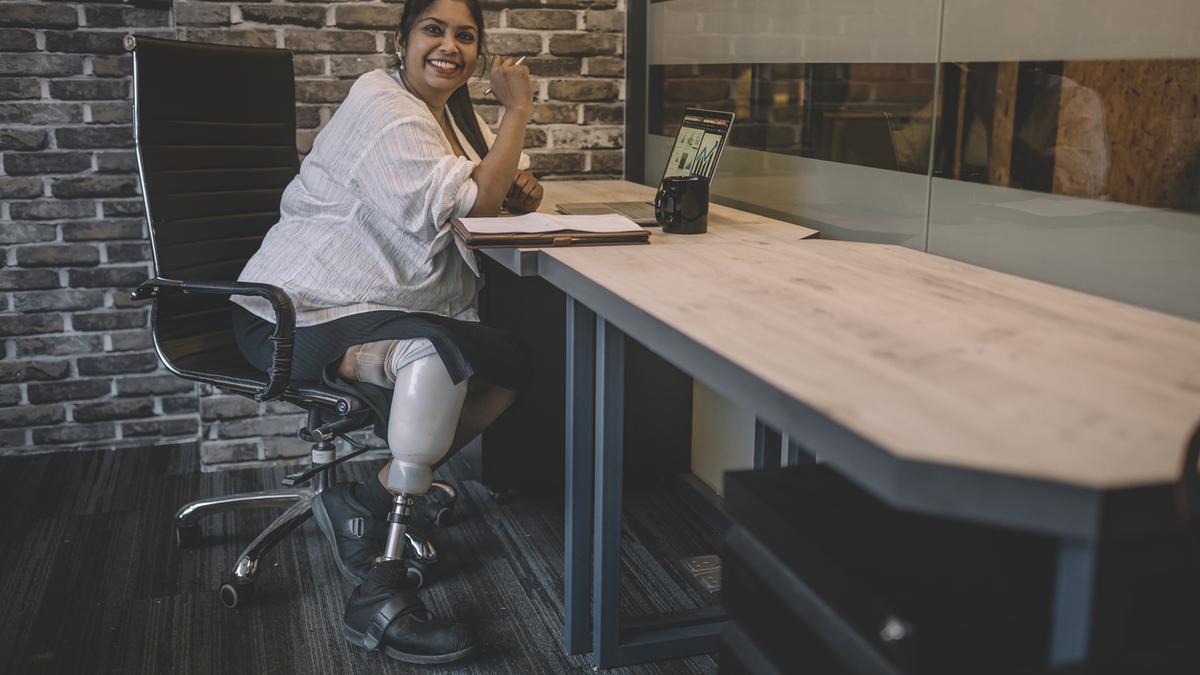In a landmark ruling, the Supreme Court recently declared that the National Medical Commission’s requirement for MBBS admissions — stipulating “both hands intact, with intact sensation and sufficient strength” — violates constitutional principles and is arbitrary. The SC said that such a prescription reeks of ableism and has no place in statutory regulation.
Medical colleges need to equip themselves to facilitate classes for students with disabilities. While advanced technologies like Virtual Reality (VR) and Artificial Intelligence (AI) can help bridge learning needs of the disabled, much more needs to be done to create a supportive environment so they can
The judgement was passed when the SC was hearing the case of a candidate who suffered from 50% locomotor disability and 20% speech and language disability. The candidate had cleared the NEET with flying colours. However, an Assessment Board had found him ineligible to be a doctor due to his disability. The ruling confirmed the candidate’s admission to Government Medical College, Sirohi, Rajasthan.
Call for inclusivity in medical education
This call for inclusivity in medical education is not unique to India; it has resonated globally over the past two decades. Prof. David Snashall, in his article, ‘Doctors with disabilities: licensed to practise?’ emphasizes that medical schools now have a responsibility to accommodate a broad range of disabilities. The same applies to hospitals and other healthcare establishments.
At the same time, medical technology has advanced at an astonishing pace, parallel to developments in other fields. The growing impact of Virtual Reality (VR), Artificial Intelligence (AI), and other advanced technologies has not only transformed patient experiences but also opened doors to careers traditionally inaccessible to people with disabilities.
For instance, individuals with mobility impairments can now experience medical procedures or practice tasks remotely, overcoming physical barriers. VR can also be customised with audio cues, captions, or tactile feedback for those with visual or hearing impairments, helping them acquire skills in fields where they previously faced obstacles. Meanwhile, AI plays a crucial role in the development of assistive devices such as speech recognition software, AI-powered prosthetics, and smart home systems, enabling people with disabilities to live more independently by compensating for physical or cognitive limitations.
While experts say that these technologies help address social, physical, and cognitive barriers inherent in traditional teaching environments, other issues persist. Dr. Sreekumar Ramankutty, an orthopedic surgeon from the U.K., says it is important to support the inclusion of candidates with disabilities early in their training, with the aid of appropriate technology and workplace-related adaptations. “Other challenges include a feeling of being isolated and not adequately mentored during their training periods. There are also instances of bullying and harassment, and a lack of senior role models or support,” Dr. Ramankutty adds.
Technology not an answer to ableism
Ms. Bhagyam Anantharaman Aravind, a plant geneticist and mother of two, reflects on her experience as a person with a locomotor disability navigating the medical school application process. She describes it as “an ordeal by itself”. The concession given to her based on the categorisation did not help. “I was given a whole extra hour, while what I really required was mobility assistance — extra time might have been more helpful for someone with upper-limb or visual disabilities,” she says.
Ms. Aravind says that 98% of the time, people with disabilities are not understood because of a lack of representation in the educational system. All the decisions are made by able-bodied individuals. “The educational system needs to start becoming inclusive and accessible from the grassroots level. As humans, we all have shortcomings; what we lack in dexterity, we make up in empathy and diligence. The dexterity shortcoming can now be leveled with technology, robotics, and assisted surgery, right?”
Dr. Martand Jha, a faculty member at the Delhi School of Journalism and an individual with Poland syndrome, acknowledges that while technology can aid in training, it does not address the apathy that people with disabilities often face. “In the hierarchy of society, the general mindset seems to place us below able-bodied individuals. When we are excluded from educational policy-making and representation, even AI can end up being biased and inadvertently designed to exclude us,” he observes.
He further explains that ableism has become so ingrained in society that, rather than using technology to find solutions to problems, we end up creating bigger issues. “At a conference abroad where I was invited to give a lecture, a fellow delegate proudly shared how he had found an ‘innovative’ solution to the noise issues caused by a manufacturing process that was affecting able-bodied individuals. Instead of developing noise-canceling earphones, he hired hearing-impaired individuals to address the problem,” he adds.
While technological advancements can certainly cater to the individual needs of doctors in training — providing real-time feedback, adapting to their pace, and ensuring trainees can practice and hone their skills in a safe, simulated environment. Dr. Jha stresses that inclusivity must begin much earlier. “Inclusivity needs to begin at kindergarten or much earlier. Depict pictures of a wheelchair-bound child making friends in an NCERT textbook for tiny tots, because bullying doesn’t begin until puberty. Show disabled children included in cartoons just as you would any other kids to normalize the concept of them as humans and treat them with dignity,” he suggests.
In this era of technological innovation, the path to a more inclusive medical education system is clear: technology can bridge many gaps, but societal change must start from the ground up to truly ensure that all individuals, regardless of ability, can thrive in medical careers.
(Dr. Mythreyi Devarajan is a passionate Science Communicator and Educator. You can reach out to her [email protected])
Published – March 08, 2025 03:54 pm IST
